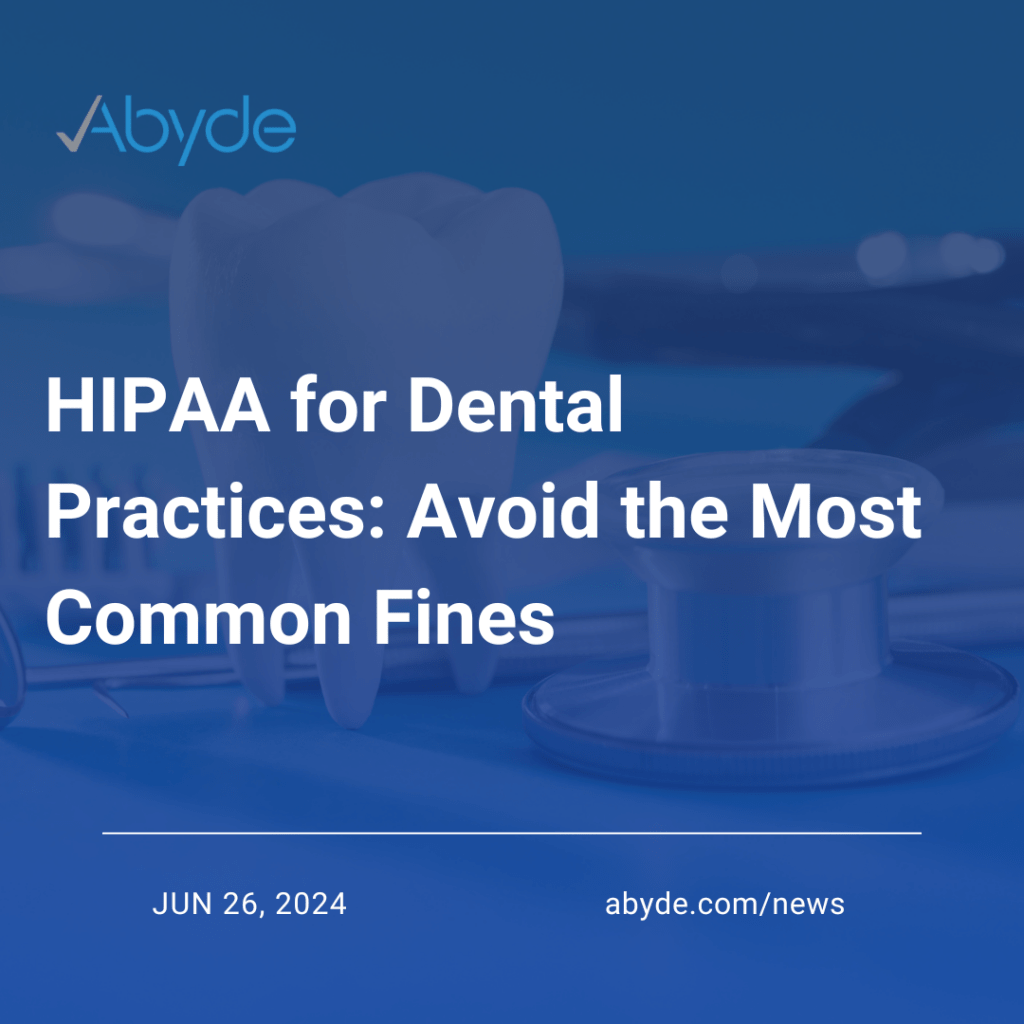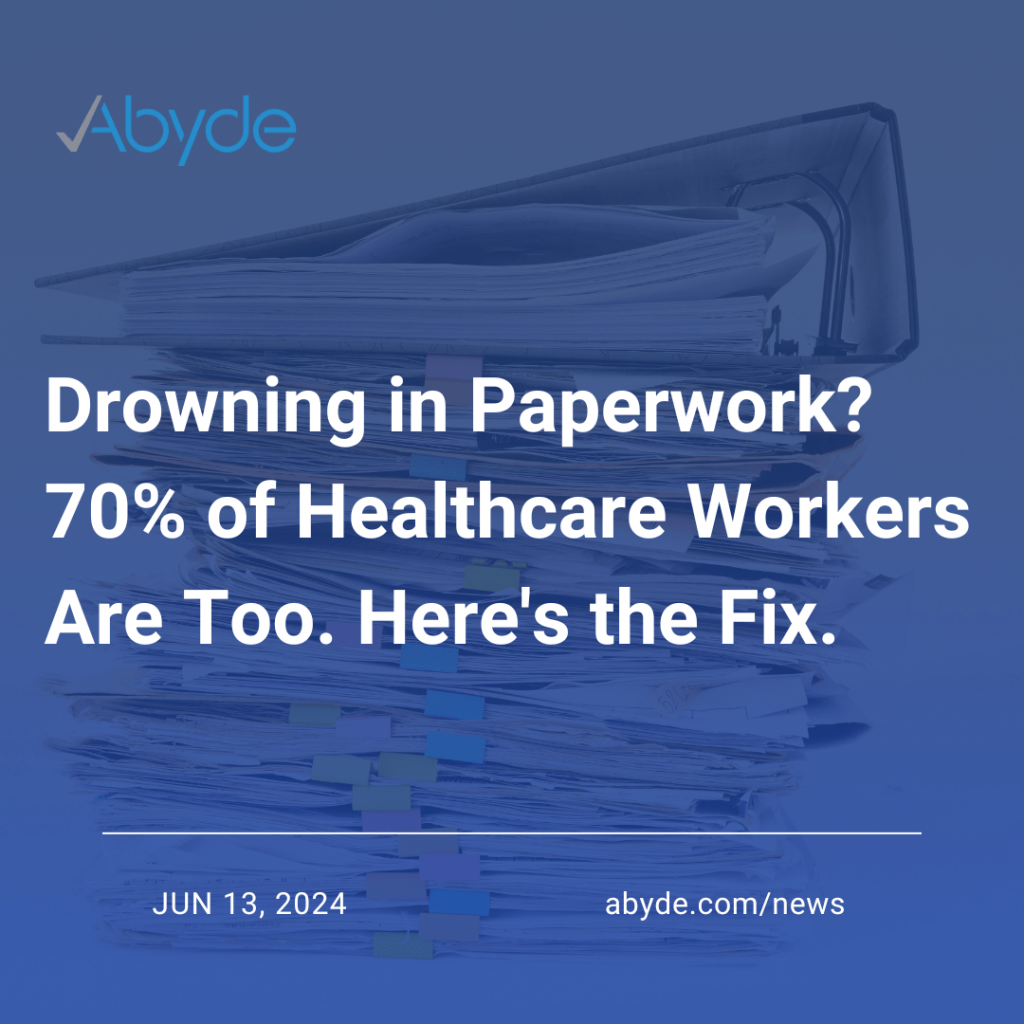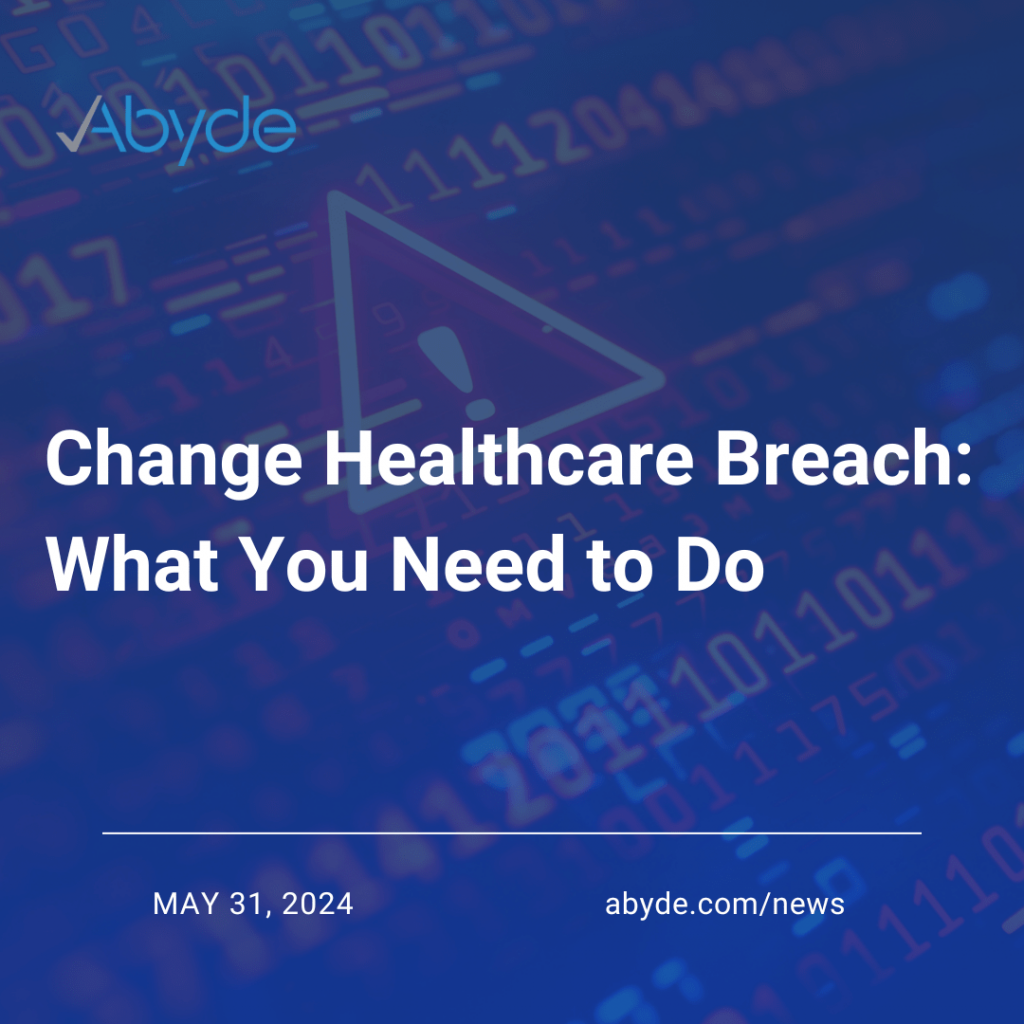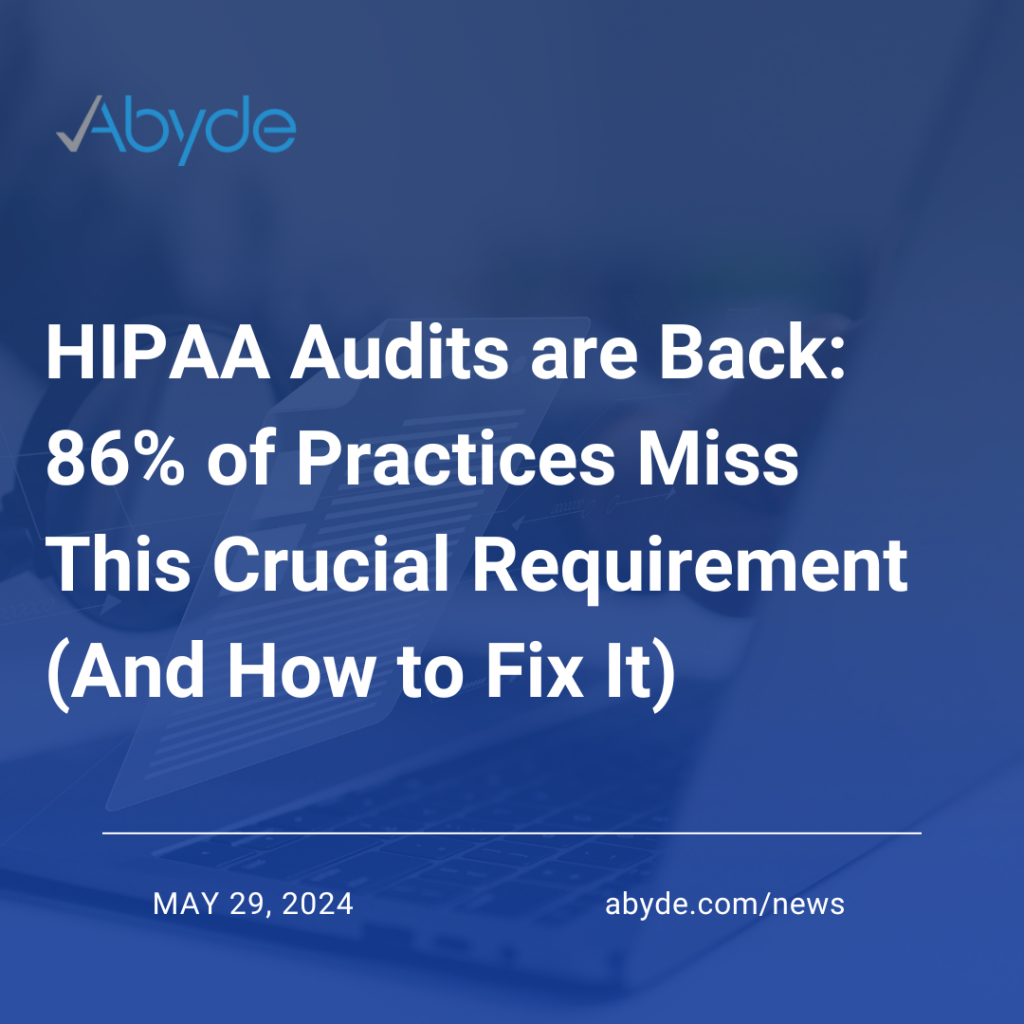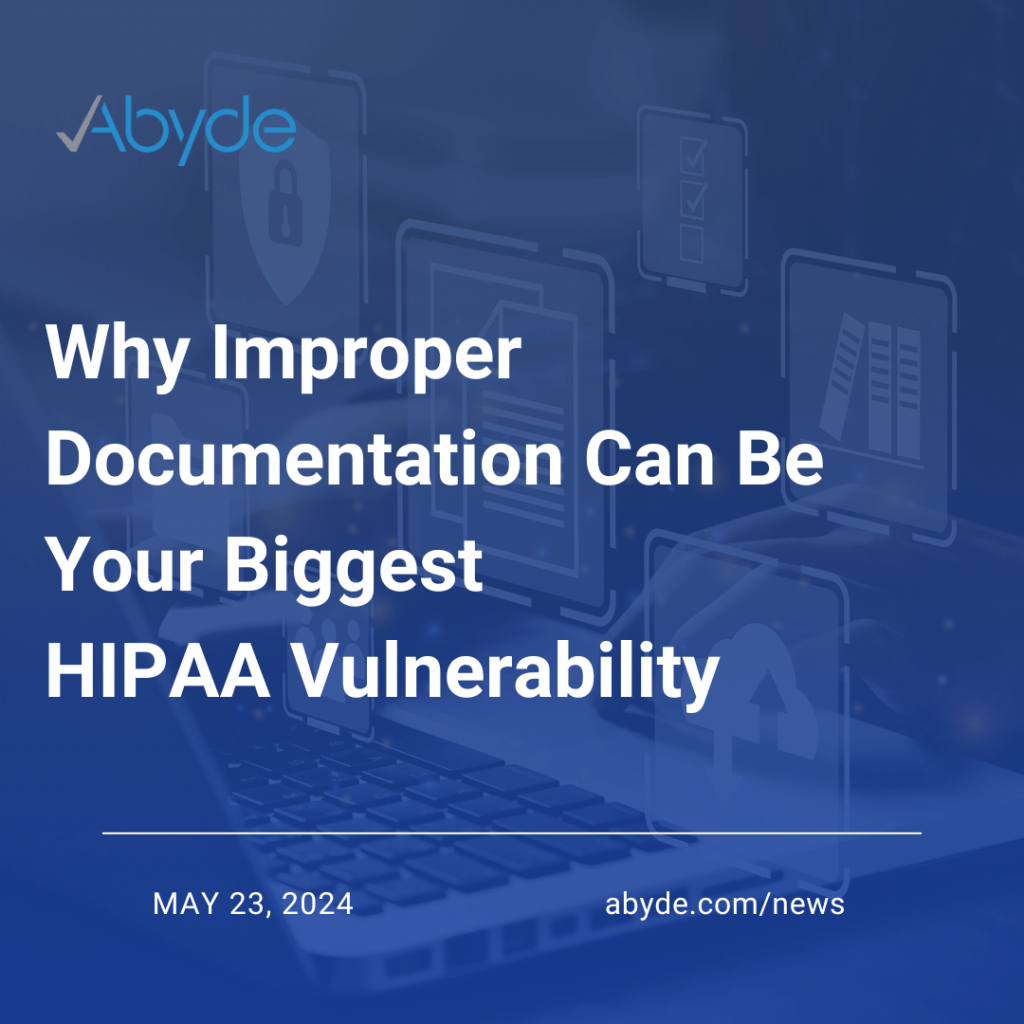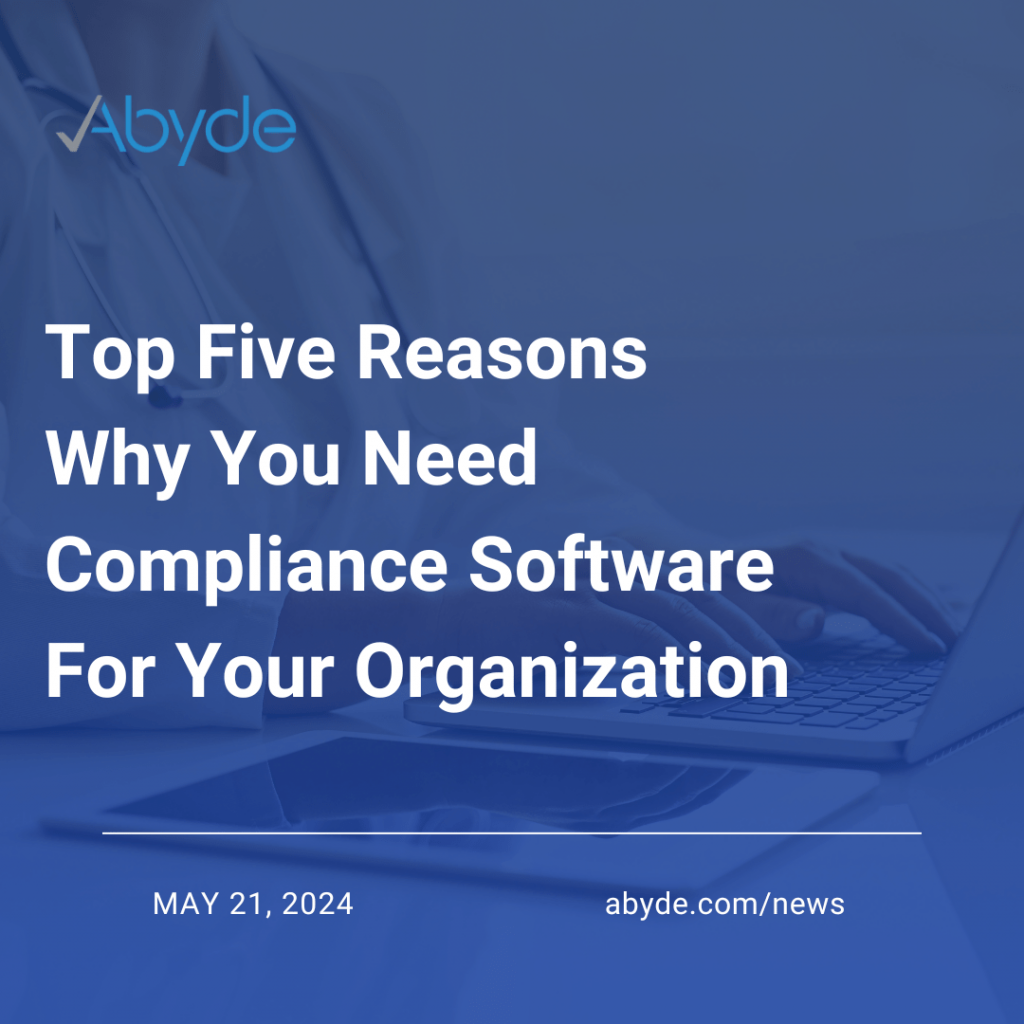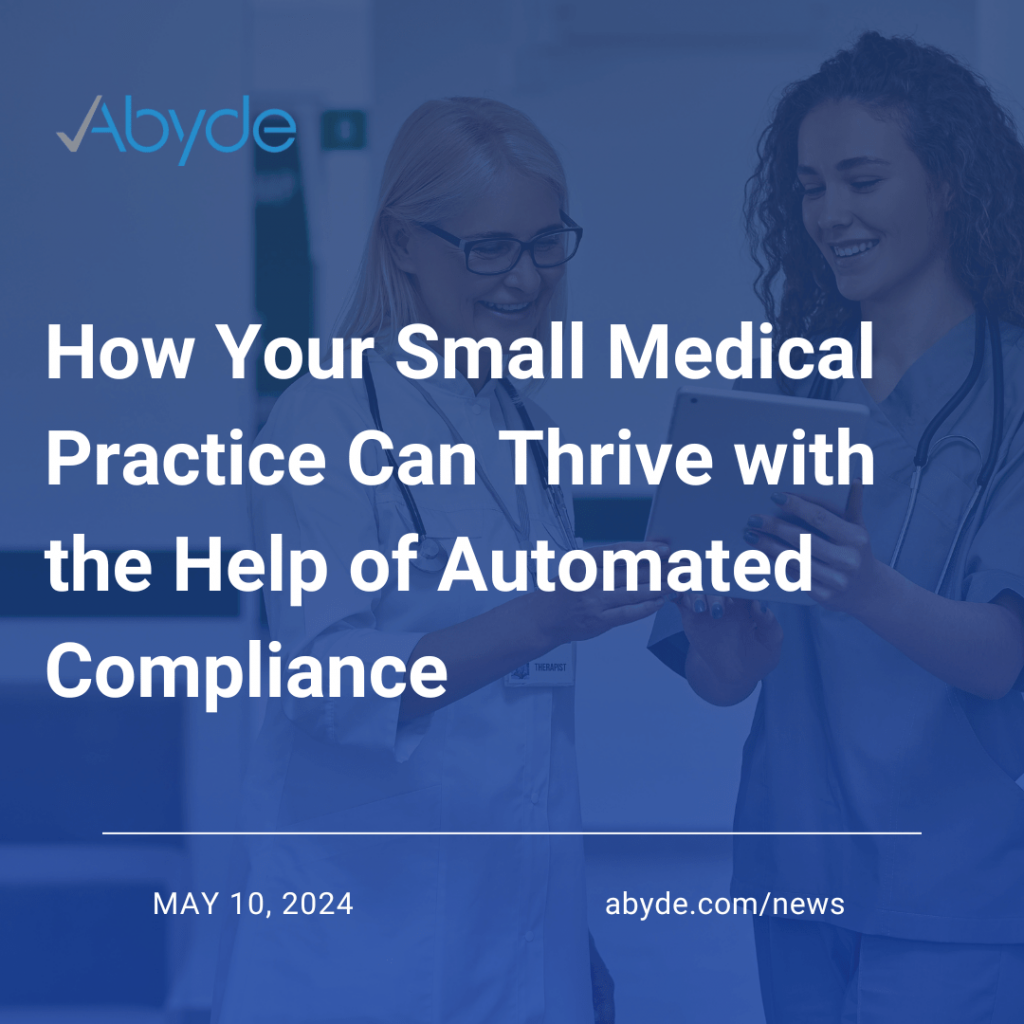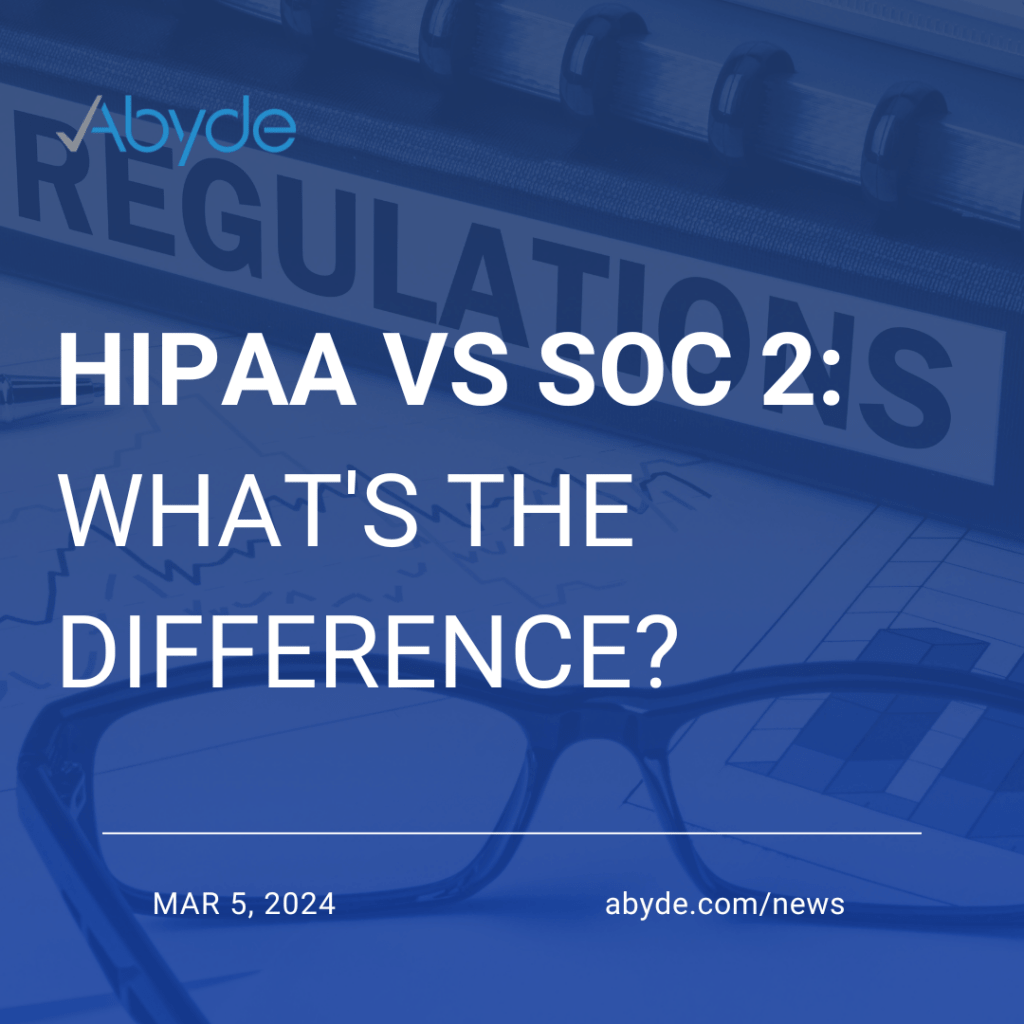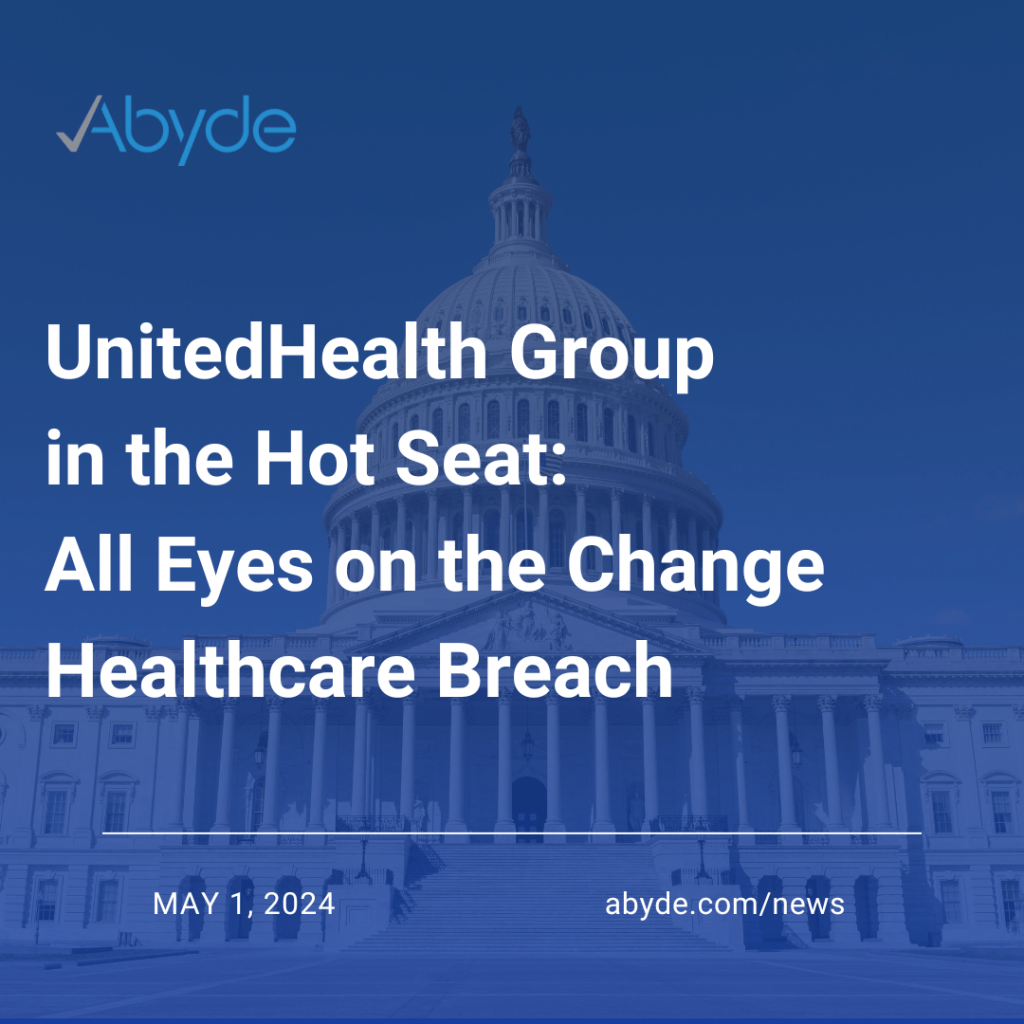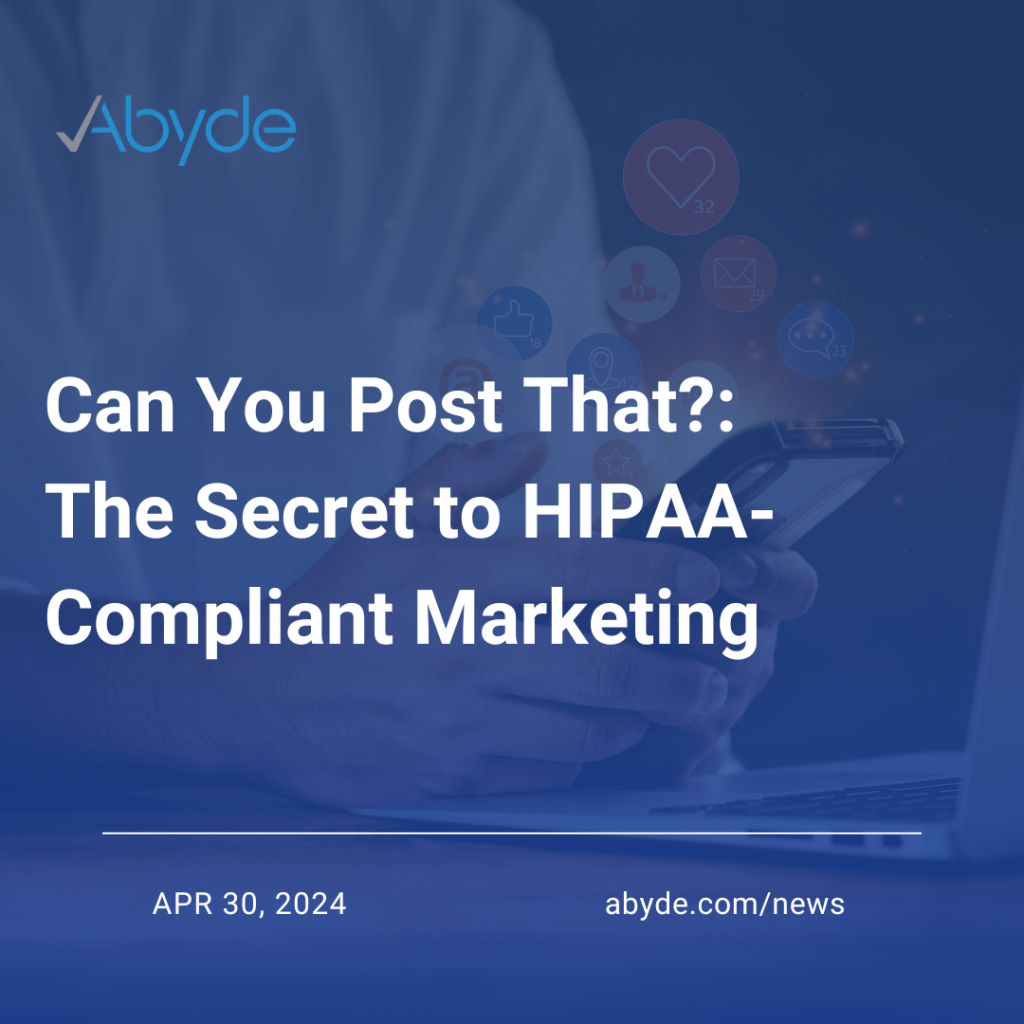June 26, 2024 Did you know that as of 2023, less than half of dental offices in the United States are fully HIPAA compliant? Dentists play a crucial role in maintaining oral health and ensuring the safety of their patients’ Protected Health Information (PHI). Although HIPAA regulations can be complex, it’s essential to understand and comply with them to protect your dental practice and patients. This article explores the most common HIPAA fines for dentists and how you can manage them. Right of Access Under HIPAA, patients can access their medical records within 30 days of the first request and should not be charged unreasonable costs. Dentists have been fined several times for violating this right. A practice in Georgia took over a year to provide a patient with her medical records after she refused to pay a $170 copying fee. This incident violated the 30-day timeline, and the fee was also deemed unreasonable, resulting in a fine of $80,000. To uphold a patient’s right to access their medical records, it’s vital to manage record requests promptly and organize them. It’s also essential to avoid charging excessive fees for accessing these records. If you’re unsure about what would be considered a reasonable fee, the OCR has issued guidance suggesting a flat fee of a maximum of $6.50 for accessing records. Social Media Usage On top of managing your practice’s reputation in person, you have to manage it online. Online reviews are a shared resource patients use while selecting a new dentist. 94% of patients use online reviews while choosing a new medical provider. However, while managing your online presence, you must be HIPAA compliant. This means not sharing any of your patient’s PHI in reviews. A dental practice in North Carolina was fined $50,000 for improperly sharing a patient’s PHI online in response to a negative review. The practice shared significant PHI about the patient, which discredited the original review. No matter how inaccurate or false a review may be, sharing a patient’s PHI online is never justifiable. Keeping responses short and sweet is essential to avoid making a social media mistake. Even if someone has shared information in their review, you can’t mention that they are a patient at your practice. It’s essential to use a brief and general response while navigating HIPAA. If you receive a negative review, it’s crucial to stay calm. Getting upset for a few seconds isn’t worth facing thousands of dollars in fines. Next, take the conversation to a private channel. Respond to the comment with HIPAA-compliant communication, such as providing a phone number or encrypted email to further discuss the patient’s experience. Cybersecurity Access In our technology-driven world, most, if not all, dental practices utilize technology to create and store patient data. In recent years, cybersecurity concerns and hacks have infiltrated the healthcare system, with hacking causing 77% of large breaches. Controlling and training staff on technology use is vital for protecting your practice. In a rare case, a HIPAA violation resulted in jail time for an employee at a dental practice. This employee, a receptionist, abused her access to PHI, stealing patients’ identities and making significant purchases with them. She was sentenced to two to six years in prison for her crime. Encrypt and secure information properly to avoid cybersecurity-related fines. Additionally, assign roles and access to employees individually, with every employee having their own login. Periodically review employee access and activity to ensure technology is being used correctly. How Software Can Help There’s a better way to simplify the compliance process for your dental practice. Software offers the ability to streamline your administrative tasks, saving you time and letting you focus on taking care of your patients. Automated and dynamic software helps you be proactive in avoiding these common mistakes, pinpointing your vulnerabilities, and resolving them effectively. Schedule a consultation here to learn more about how Abyde’s intelligent solutions can help create a culture of compliance and protect your practice.
Drowning in Paperwork? 70% of Healthcare Workers Are Too. Here’s the Fix.
June 13, 2024 Did you know that more than 70% of healthcare workers spend over 10 hours a week on paperwork? When working in healthcare, the last thing you might expect is to spend most of your time on paperwork, but it’s a reality for many. Paperwork might seem monotonous and time-consuming, but it’s a crucial requirement for HIPAA. Your compliance program must be documented to prove you’re protecting your patients. Why can’t I use templates? It’s essential to avoid cutting corners with compliance paperwork. Personalized documentation is key, so using templates isn’t compliant. Templates are generic, whereas documentation represents the specific policies and procedures for your location that must be followed to protect your patients’ PHI (Protected Health Information). Many policies and procedures are required to ensure staff safety and PHI. Some examples include the Disaster Recovery Plan, the Breach Notification Policy, and the Electronic Data Disposal Policy. They must be personalized for your practice, such as including local emergency phone numbers in the Disaster Recovery Plan or defining specific roles and responsibilities in policies. Additionally, if responsibilities change, policies and procedures must be updated, ensuring the latest info is documented. By drafting personalized documentation, your practice ensures its staff knows their responsibilities regarding protecting PHI and the procedures that must be followed. What else is required documentation? Drafting documentation is the first step, but organizing the content is just as important. Policies and procedures should be easily accessible so staff can review them effortlessly. In any situation, your team should be able to access the plan quickly, stay calm, and review the documentation. The documentation should also be clear and understandable for the staff. Staff should have easy access to policies and procedures, which should be reviewed during onboarding to provide new employees with the necessary resources. How Software Solutions Can Help In the past, documentation was often seen as an overwhelming, overflowing binder, but that doesn’t have to be the case. As technology advances, your compliance program needs to keep up as well. Nowadays, healthcare workers can use software solutions to create personalized documentation quickly. Software solutions can help eliminate the possibility of human error and utilize cutting-edge technology to dynamically generate policies that meet the latest requirements in the healthcare industry. Almost all healthcare employees spend numerous hours every week on paperwork. So why not significantly reduce the time spent on these activities and achieve compliance in minutes? Software rapidly creates personalized documentation, including staff names and responsibilities, and provides organizational structure. Instead of disorganized physical binders, you can have an intuitive solution with policies and procedures hosted in the cloud that are easily accessible with an internet connection. To learn more about how Abyde can save your practice countless hours on documentation, schedule a software demo.
Change Healthcare Breach: What You Need to Do
May 31, 2024 Since February, the Change Healthcare ransomware attack has dominated headlines in the medical industry, cited as likely the most significant breach ever in the U.S. health system. To quickly recap, a group of malicious hackers infiltrated Change Healthcare’s systems in February. The hackers had access to the system for nine days before infecting systems with ransomware on the 21st. When it was realized Change Healthcare’s systems were compromised, its systems were immediately disconnected to mitigate risks. This attack not only jeopardized patients’ Protected Health Information (PHI) but also caused detrimental impact on the healthcare industry at large. Change Healthcare processes 15 billion healthcare transactions annually. With these systems down, healthcare providers continue to struggle with basic processes, like filling prescriptions and getting paid through insurance claims. The latest update on the Change Healthcare breach has reached Capitol Hill. Andrew Witty, CEO of UnitedHealth Group, the parent company of Change Healthcare, testified at two congressional hearings on May 1st. At these hearings, the cause of the breach was acknowledged: a lack of multi-factor authentication prompts when logging into internal systems. Additionally, while Witty confirmed that the exact scope of impacted patients is unknown, it is expected to be very severe. One-third of Americans could be affected by this cyberattack. Although Change Healthcare’s lack of security protocols caused the catastrophic breach, it is still your practice’s responsibility to notify impacted patients. What You Need to Do The Office for Civil Rights (OCR) is still investigating the magnitude of this cyberattack, but guidance has been released. First, Change Healthcare is notifying stakeholders impacted by the breach. This includes Covered Entities and Business Associates. Business Associates must notify Covered Entities if their business is affected, and the responsibility to inform patients ultimately falls on Covered Entities. The Breach Notification Rule under HIPAA details what information needs to be shared with patients, including suspected dates the data was breached, what PHI was involved, and the next steps. Once it’s known that this breach impacted your patients, it’s vital to notify affected individuals without unreasonable delay and to inform the HHS. The media must also be notified if five hundred or more patients were affected. After this significant cyber attack, reviewing your risks and vulnerabilities is crucial. If a vast organization processing up to $2 trillion in medical claims annually can be hacked, so can your practice. Ensure standard security protocols, like multi-factor authentication, are in place to mitigate the risk of breaches. When it comes to your HIPAA compliance programs, securing your data is critical. For example, Abyde’s cloud-based software features an intuitive Security Risk Analysis (SRA) and ongoing compliance review to quickly identify and address risks to keep your practice’s sensitive data safe. As this breach is still under investigation, Abyde will keep Covered Entities and Business Associates up-to-date on the latest developments. Visit the HHS FAQ page on the Change Healthcare breach here. To learn more about software solutions to ensure protected compliance for your practice, schedule an educational consultation here with a compliance expert.
HIPAA Audits are Back: 86% of Practices Miss This Crucial Requirement (And How to Fix It)
May 29, 2024 The random HIPAA audits are officially back. Melanie Fontes Rainer, Director of the Office for Civil Rights (OCR), confirmed in a recent interview that the OCR is proactively conducting audits as part of a series of improvements. Following a five-year hiatus from proactive audits, the Office for Civil Rights (OCR) has been updating key HIPAA regulations. For instance, the OCR is also releasing an updated Security Rule by the end of the year to better reflect innovation since its original publication over twenty years ago. As the OCR continues to advance HIPAA rules, it’s vital to be prepared with a foundation of a compliant practice. At the base of this foundation is the Security Risk Analysis (SRA), a commonly missing HIPAA requirement. During the last round of proactive audits, 86% of Covered Entities could not show a properly documented SRA for their practice. What is a Security Risk Analysis (SRA)? The OCR defines an SRA as “an accurate and thorough assessment of potential risks and vulnerabilities to confidentiality, integrity, and availability of electronic Protected Health Information (ePHI).” The SRA is focused on protecting ePHI. It is a continuous requirement and needs to be updated when significant changes occur to your practice. It’s best practice to complete the SRA at least annually. An SRA is a complete evaluation of how PHI is protected. Questions include encryption practices, staff training, disposal of PHI, and more. Why is the SRA Important? The SRA documents proof that a practice has appropriate safeguards to protect sensitive patient data. It requires practices to conduct self-audits and identify risks and vulnerabilities before they become issues. This means anticipating vulnerabilities and implementing preventative measures before sensitive data is compromised. If followed correctly, the SRA acts as a vital line of defense, helping prevent data breaches, ensuring patient privacy, and building trust within the healthcare system. How do I complete an SRA? Completing an SRA is crucial for protecting sensitive patient data. The good news is that several approaches are available, each with varying costs and timelines. Before starting an SRA, it is essential to have an HCO, or HIPAA Compliance Officer, in place to manage HIPAA documentation and the SRA process. You can complete the SRA internally using online resources provided by the OCR. While there are free resources, this option is less intuitive than others, can be time-intensive, and requires significant team effort. Manual audits can take weeks to months to complete. You could also hire an external auditor or consultant to complete your SRA. Hiring a consultant might reduce the burden on your team but can be costly. The average price of an external auditor is in the thousands, with some costing upwards of $20,000. Additionally, these external audits can take months. An alternative option is intelligent compliance software, which provides significant benefits for meeting the SRA requirement and more. It allows you and your practice to navigate the SRA cost-effectively and efficiently. While a manual audit usually takes weeks to months, an audit assisted by software can be completed in significantly less time, simplifying the SRA process, and saving your practice substantial costs and assuring protection. Why Should I Use Compliance Software? As the Security Rule is updated, your compliance program also deserves an upgrade. Intelligent software solutions can help you easily fulfill complex HIPAA requirements, prepare for potential risks and vulnerabilities, and protect patient data. Many organizations overlook the SRA, but software solutions can streamline the process and protect your practice. To learn more about Abyde’s innovative software solutions, schedule an educational consultation.
Why Improper Documentation Can Be Your Biggest HIPAA Vulnerability
May 23, 2024 Secure documentation is essential in any industry. However, in healthcare, there’s even more on the line. Ensuring HIPAA compliance with proper patient data care is crucial. Let’s explore how it works. Required Documentation for HIPAA HIPAA requires Covered Entities (CEs) and Business Associates (BAs) to document how they manage Protected Health Information (PHI). Your organization needs to document its compliance process to be HIPAA compliant. This process includes your initial Security Risk Analysis, identifying risks and vulnerabilities, completing training, and any partnerships your organization might have with BAs. Under the Breach Notification Rule, any breach must be documented and reported, and affected patients must be notified. Written proof is required that your organization takes appropriate measures to protect patient data, especially when dealing with PHI. Additionally, your practice’s policies and procedures must be easily accessible and personalized for your location. Personalized documentation of policies, like a Disaster Recovery Plan, details the best course of action for your employees and their roles if a situation arises. What Happens if Documentation isn’t in Place? When documentation isn’t in place, it can lead to fines. Proper documentation is crucial for HIPAA compliance. HIPAA mandates personalized documentation of your practice’s compliance program, which identifies your practice and shows that appropriate measures are in place to secure PHI. The Business Associate Agreement (BAA) is a legally binding contract required for Covered Entities to establish with their Business Associates. The BAA outlines each party’s responsibilities for securing PHI. This documentation is vital for ensuring compliance with HIPAA regulations and identifying duties in the relationship. Many organizations have faced fines for neglecting this essential documentation. For instance, the Center for Children’s Digestive Health was fined $31,000 for lacking a BAA. While thorough documentation practices are essential, many practices using manual methods often fall short, leading to HIPAA violations. At the latest HIPAA Summit, the OCR stated that some of the most common recurring HIPAA violations include incorrect documentation, especially missing BAAs. It’s a simple task to ensure accountability, but it’s necessary. How Intelligent Software Solutions Can Help Documentation is essential but can be overwhelming. Compliance software simplifies the process, saving countless hours and protecting your practice. Innovative cloud-based solutions enable you to auto-generate and manage your policies and procedures quickly. You can create your documentation dynamically in seconds, ensuring your practice has the most up-to-date documentation. BAAs, a commonly overlooked document, can also be managed within software. Drafting the agreement and sending the documentation through the software simplifies the process. To learn more about how Abyde can streamline and simplify your HIPAA compliance, please schedule an educational consultation.
Top Five Reasons Why You Need Compliance Software For Your Organization
May 21, 2024 As a healthcare provider, staying updated on evolving regulations is crucial to protecting your practice, its reputation, and its patients. But complying with regulations can be daunting; even the most diligent teams face challenges. In light of the recent Change Healthcare Breach, it’s more important than ever for practices of all sizes to reevaluate their compliance approach. This is where automated compliance software provides an excellent solution to streamline, simplify, and secure the process. This blog post explores the benefits of intelligent software compliance programs for protecting your practice in place of manual compliance efforts and how software can help you succeed. Top Five Reasons Why You Need Compliance Software 1: Automate Tasks & Reduce Manual Work An average manual HIPAA audit can take anywhere from several hours to several months to complete. When patient care is the focus, this is wasted time. Intelligent, user-friendly software assists practices in understanding the process and managing their time efficiently. With algorithms running the program, employees can dedicate more time to patient care, optimize workflow, efficiently schedule appointments, and reduce wait times. 2: Avoid Fines with Compliance Software The average cost of a HIPAA fine in 2023 was $321,269. In comparison, investing in software is much less expensive than a potential fine, saving practices hundreds of thousands of dollars with preventative measures. Ensuring ongoing compliance is the key. Software simplifies necessary processes to ensure compliance, potentially reducing common infractions that result in fines and penalties. 3: Effectively Manage Risk HIPAA is highly detailed and demanding, requiring practices to maintain meticulously documented and ongoing compliance programs. With centralized documentation, integrated Security Risk Analysis (SRA), and automated ongoing risk monitoring, risk can be mitigated. Software can dynamically generate policies and reporting, streamlining cumbersome processes. With thorough reporting, organizations can make informed decisions and proactively identify gaps. Stronger risk management protects practices against threats to their reputation, finances, and operations. 4: Develop a Thorough Understanding of Compliance Understanding the regulations is essential for maintaining HIPAA compliance. Access to comprehensive training and up-to-date resources to ensure compliance is another advantage of software solutions. Regular training establishes a foundation for your organization to foster a culture of compliance. Software companies also provide dedicated support teams to assist your practice with questions. 5: Stay Ahead of Regulations The Office for Civil Rights is always improving and updating HIPAA rules to keep up with the latest technology and practices. Melanie Fontes Rainer, the director of the OCR, recently discussed the HIPAA Security Rule, stating that HIPAA is technology-neutral and scalable, but it doesn’t reflect how we receive healthcare today. This is particularly important considering the OCR has recently issued new HIPAA and online tracking guidelines. As technology advances, so does regulation. Changes in regulations are challenging to keep up with. Alternatively, software is regularly updated to align with compliance changes, simplifying reviews of the evolving healthcare landscape. You can minimize risk and stay compliant by receiving the latest HIPAA updates from your software provider. How Abyde can help Manually managing HIPAA compliance can be risky and error-prone, leaving your practice exposed. Instead, you can easily navigate requirements and safeguard your practice while saving significant hours and costs. All while promoting a culture of compliance through staff education on regulations and requirements, it’s all possible with software by Abyde. To learn more about ensuring your practice is compliant, email info@abyde.com and schedule an educational consultation.
How Your Small Medical Practice Can Thrive with the Help of Automated Compliance
May 10, 2024 We’re celebrating National Small Business Day by highlighting some of the hardest-working individuals in the industry who serve patients day in and day out. Small medical practices account for a significant portion of the healthcare system, with over half of physicians working in practices with ten or fewer doctors. Additionally, many physicians own their practices, with 44% being self-employed. Running your small medical practice comes with great benefits but unique challenges. Read more as we discuss the common hurdles and how intelligent software-based compliance solutions work for your small practice. Small Practice Challenges: Cost Small medical practices operate with fewer resources. Cash flow and high costs are common dilemmas for small medical practices compared to hospitals. With fewer resources, small practices can be more vulnerable when challenges arise. For instance, as seen with the Change Healthcare breach, over 78% of surveyed small medical practices cited facing difficulties, with 31% unable to run payroll. While navigating high operating costs, the annual average ranges from $600,000 to $800,000, finding affordable yet effective resources is imperative. Small Practice Challenges: Administrative Burdens Administrative work can significantly impact the success of a practice. Time is valuable, especially when the office staff is a few people wearing many hats. Without the right tools, administrative tasks take a significant portion of a healthcare employee’s day. For instance, the average doctor spends almost 10 hours weekly completing clerical tasks, or roughly one-fifth of working hours. Maintaining complex and time-consuming HIPAA and OSHA compliance are examples of such tasks. Having comprehensive compliance programs is vital to being compliant. Without an automated solution, some administrative tasks include writing thorough policies and procedures, manually tracking staff training, and maintaining organized compliance documentation. Small Practice Challenges: Burnout Burnout is a common experience in healthcare. More than 90% of doctors have felt the impact of burnout. Juggling a demanding healthcare role with the responsibilities of running the practice itself can take a significant toll if not managed correctly. Administrative tasks contribute to this stress, with 64% of doctors noting clerical requirements as a significant stressor. HIPAA and OSHA compliance can be overwhelming, and the consequences can be severe. When fines can cost your small practice millions of dollars, finding a solution to alleviate compliance stress is essential. How Abyde Can Help Running a small medical practice can be difficult, but it is a testament to your dedication to your patients. Abyde understands that you want to spend more time with your patients, and automating HIPAA and OSHA compliance is a path to that goal. Our automated,cloud-based compliance software is for healthcare professionals like you seeking a secure and simplified approach to managing compliance. With Abyde’s easy-to-use solutions, your practice can save time and money, mitigate risk, and ensure you are always up to speed with the latest compliance requirements. To learn more about Abyde’s solutions, email info@abyde.com or schedule an educational consultation with one of our experts here.
HIPAA vs SOC 2: What’s the Difference?
Students must be equipped with the skills to navigate the digital world effectively, including using computers.
UnitedHealth Group in the Hot Seat: All Eyes on the Change Healthcare Breach
May 1, 2024 Over the last several months, your friends at Abyde have kept you updated on the latest in the Change Healthcare Breach. Since February 21st, this breach has held the healthcare industry captive, likely the most significant healthcare data breach in the United States ever. Change Healthcare, nestled under the UnitedHealth Group umbrella, processes about 50% of U.S. medical claims, is still picking up the pieces. If you work in healthcare, you feel the sting of the attack. Almost all hospitals reported financial damages because of the attack. So, how did we get here? You’re getting answers, as CEO of UnitedHealth Group, Andrew Witty, is set to testify in front of two congressional panels today. Don’t worry, we’re not going in blind! While Witty might be on center stage today, a written testimony has already been released. Stay tuned because we’re decoding this testimony and answering your burning questions. Pack your bags! We’re taking a quick trip to the Capitol! Party Crashers This compliance catastrophe began on February 21st, with the BlackCat hacking group infecting Change Healthcare’s systems with ransomware. However, the team of malicious hackers had been plotting for over a week, being in Change Healthcare’s systems for nine days before the attack. How did they get in? It wasn’t a Mission Impossible stunt, avoiding lasers and jumping between buildings, but a simple case of compromised credentials. Using a stolen login, the black-hat hackers could log into a Change Healthcare application portal and remotely access desktops. This portal didn’t have a standard security protocol: multi-factor authentication. Multi-factor authentication (MFA), like a code sent to your phone before logging in, is a typical security standard for protecting sensitive data. Implementing technical safeguards, like MFA, falls under the HIPAA Security Rule. Mopping up the Mess While Change Healthcare is no stranger to hacking attempts – thwarting 450,000 intrusions a year – once the ransomware was identified, Change Healthcare sprung into action. According to Witty, the Change Healthcare team immediately severed connectivity with the data centers to avoid the spread of ransom. Change Healthcare started from the bottom up, rebuilding the foundation of its technology infrastructure, replacing thousands of laptops, implementing new credentials, and new servers with the help of Tech powerhouses like Amazon and Google. As of today, the ransomware only impacted Change Healthcare and none of UnitedHealth Group’s other organizations. Witty also admitted to meeting ransom demands, saying it was one of the toughest decisions he’s ever had to make. What’s Next? These uninvited party crashers have put the UnitedHealth Group in hot water. These congressional hearings are just the tip of the iceberg for the medical titan. Here at Abyde, we’re keeping a close eye on things, and you can bet we’ll keep you in the loop through our blogs and social media on the latest in these hearings. Want to stay on top of all things compliance? Follow us and watch for our This Week in Compliance series – it’s your one-stop shop for compliance info!
Can You Post That?: The Secret to HIPAA Compliant Marketing
April 30, 2024 Going viral in healthcare has a much more serious meaning than in marketing. Marketing in healthcare is essential. You want more people to know about your practice. Like everything, the internet has revolutionized how patients look for a healthcare provider. The internet is most people’s first introduction to your practice, with 75% of prospective patients first searching online for a healthcare provider. Marketing and healthcare might seem like oil and water, especially when you throw HIPAA in the mix, but we promise you can do both, just with some rules. Ready to take your patient engagement to the next level? Here are some tips and tricks when it comes to marketing your practice and being HIPAA compliant. Tracking Tips One of the most common forms of marketing is online tracking tools. Have you ever searched for something online and seen an ad on another website? For example, while falling down the rabbit hole of watching cat videos, you go to another site. Suddenly, BAM! Cat toy ads on every other site. While we aren’t complaining about seeing more cute cats, this isn’t a coincidence. It’s just tracking tools at play. Almost every site you visit is trackable, with 90% of sites online having at least one tracking script installed. Online tracking tools have been in recent healthcare compliance news, with the OCR releasing new HIPAA-compliant guidance. Online tracking tiptoes into non-compliant territory, but installing software on suitable sites can be beneficial. First, when working with a marketing company and installing this tracking software, ensure a Business Associate Agreement (BAA) is signed. A BAA outlines the responsibilities of each party, in this case, your practice and a marketing company, when handling Protected Health Information (PHI). These agreements ensure that both parties are on the same page, are liable, and know the importance of protecting patient data. First, HIPAA does not apply to unauthenticated public sites like your practice’s homepage. Once patients are logging in, that’s when HIPAA comes into play. The information tracked must be the minimum necessary, and overall, can’t relate to the past, present, or future health, health care, or payment for health care. Following the proper protocols helps avoid fines and keeps your practice running smoothly. Back in January, the NewYork-Presbyterian Hospital was fined $300,000 due to improper tracking practices. Social Media Guru We’re not expecting you to become TikTok famous, but social media can be helpful in your practice. 74% of people online use social media, and nearly half have used it to learn more about a doctor or health professional for their care. A social media page can be like a welcoming front door for patients. So, if you’re using it, make sure it’s HIPAA-compliant and shines a light on your fantastic practice! When posting on social media, ensure PHI or patients who still need to sign a media consent form are visible. While we know you might be excited about a patient’s new smile before and after braces, without consent, you might not be so happy with the fines. In Abyde’s software, we feature a media consent form, helping to keep your practice complaint. Raving Reviews Now, we’ve all read Google reviews. Whether it be the new Mexican restaurant up the street or your new general practitioner, we rely on others’ experiences when making a decision. Over 70% of patients trust Google reviews when searching for a new healthcare provider. When responding to reviews, it’s essential to follow the simple rule: less is more. You can reply to reviews; make sure that identifiable information about a patient isn’t shared. For instance, even if it’s a lovely review, sharing a patient’s treatment online is unnecessary. It’s essential to keep your cool when responding to these messages. If it is a negative review, take it offline! Offer secure forms of contact for a patient, addressing their needs in a HIPAA-compliant manner. We’ve seen the repercussions of a Google review HIPAA violation. Manasa Health Center LLC was fined $30,000 for sharing PHI online in response to negative reviews. Even if the negative reviews were hurtful, we’re safe to say it probably wasn’t worth that much! What’s Next? We all know social media can be a game-changer for your practice, boosting patient numbers and engagement. But with great power comes great responsibility. That’s where Abyde swoops in – streamlining compliance for your practice. Abyde simplifies compliance, and with features like the intuitive Security Risk Analysis, you’ll have all the tips and tools you need to ensure you’re compliant. So, get back to posting (safely)! To learn more about compliance for your practice, schedule an educational consultation with one of our experts today!
